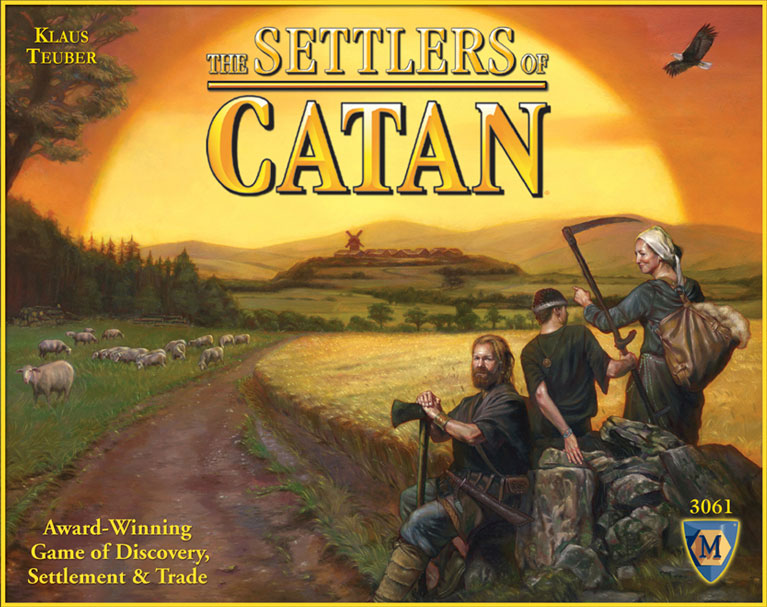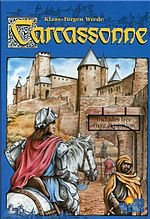Qualities to Look for in a Gateway Game
Or, The Proper Care and Feeding of Your Newbs
Gateway Game (n):
1. The first non-mainstream game played by a new gamer.
2. The first game played by a new gamer that gets them into the hobby.
* Definition courtesy of the Cardboard Republic’s Imaginary Tome of Terms
At its essence, a gateway game must be both an introduction and a test. It’s the game the piques your curiosity, pulls your attention, sparks your creativity. It’s the game that shows you a hundred paths, each an adventure, a story. It’s the game that tells you what gaming is, and what it could be.
But for you – you, the reader, the person who clicked this link – it does. It did. Your interest was grabbed, and you wanted more. You wanted to know what was next, what else was out there, and what you could play. You invested time and money – perhaps lots of both – in learning more, in playing more.
1. Keep it simple.
Let me put it this way, nerds – a gateway game should be a shiny MacBook Air, not a custom Linux server. There’s nothing wrong with the server, but it’s probably not the best place for a luddite to begin. Gateway games should embrace new players – make them feel welcome, be their guide, and leave little room for error while still offering choice. You want the game to be forgiving and simple – a stroll through the woods, not a foray into the Labyrinth.
The first time they play, your newbs will have a lot learn. Even low-complexity board games have more pieces and rules than they’re likely used to. Part of this is the nature of the hobby, but for new players it can feel a bit like learning to drive – they have to learn the controls before they can really get anywhere. Keep the basics straightforward and easy-to-understand, and you stand a good chance of adding a permanent member to your gaming group.
2. Keep it short.
Gateway games should not last more than an hour. Your newbs, intelligent and creative as they may be, likely made a few mistakes at the beginning of the game, and those mistakes may have affected their score. They may not stand much chance of winning now and may be essentially out of the game. And what happens when you know you’re out of the game? You get bored (or you get revenge). Either way, though, it’s not the most fun. The most fun is at least knowing you have a shot or, if you’ve made mistakes, knowing that they were just miscalculations. Why drag this one out? Have a game that ends quickly so that you can play again and your new player can start off on more solid footing.
Also, as much as it pains me to admit it, games aren’t for everyone. There’s a chance that this new hobby isn’t going to be the best thing ever for your friend and if that’s the case, you don’t want to be stuck playing a two hour game with someone who’s just deciding how dumb all of this is.
 3. Keep it interactive.
3. Keep it interactive.
I know. You can’t control the fact that your buddy Steve always takes fifteen minute turns. (If you could, you’d never have to play a three-hour game of Dominion again). You can control whether fifteen minute turns are the norm, though. So, if you’re playing with newbs, avoid games with extensive down time. While the more experienced players may need those extra minutes to develop strategy, plot moves, and organize pieces, a new player is likely to lose interest. It takes time and experience to build strategies: even veteran gamers feel a little lost during the first few turns of a brand new game. For novices who don’t have a pocketful of go-to strategies at the ready, it can take even longer to create a plan of attack. So, for the first few games, it’s important to keep them engaged and in the game.
Honorable Mention 1 – Aggro.
This depends on your group and your new players, but controlling the level/type of aggression allowed in a game can be vital in making a newb feel comfortable. This isn’t to say that any good gateway game is a cooperative one – in fact, most of the well-known gateways aren’t – but choosing a game that fits your new player’s style is important. Some people love the in-your-face-ness of aggressive, PvP card games. Others prefer to avoid direct conflict, and they might be better in a board game that focuses each player on building his or her base.
Honorable Mention 2 – Game Type.
Go with something that’s familiar to the new player. If they like poker, try starting them off with a card game. If they’re fans of Clue, a board game might be best. Give them a point of reference – something that they can look at and understand immediately, something that doesn’t need to be explained.
Now you know what to look for, go forth and multiply invite some newbs over to play!
Or, if you’re the contentious type and you’d like to completely disregard the above advice, check back in two weeks for the next Extra Pieces article: Speeding Around the Learning Curve Or, Introducing New Players to the Pleasure and Complexity of Non-Gateway Games
